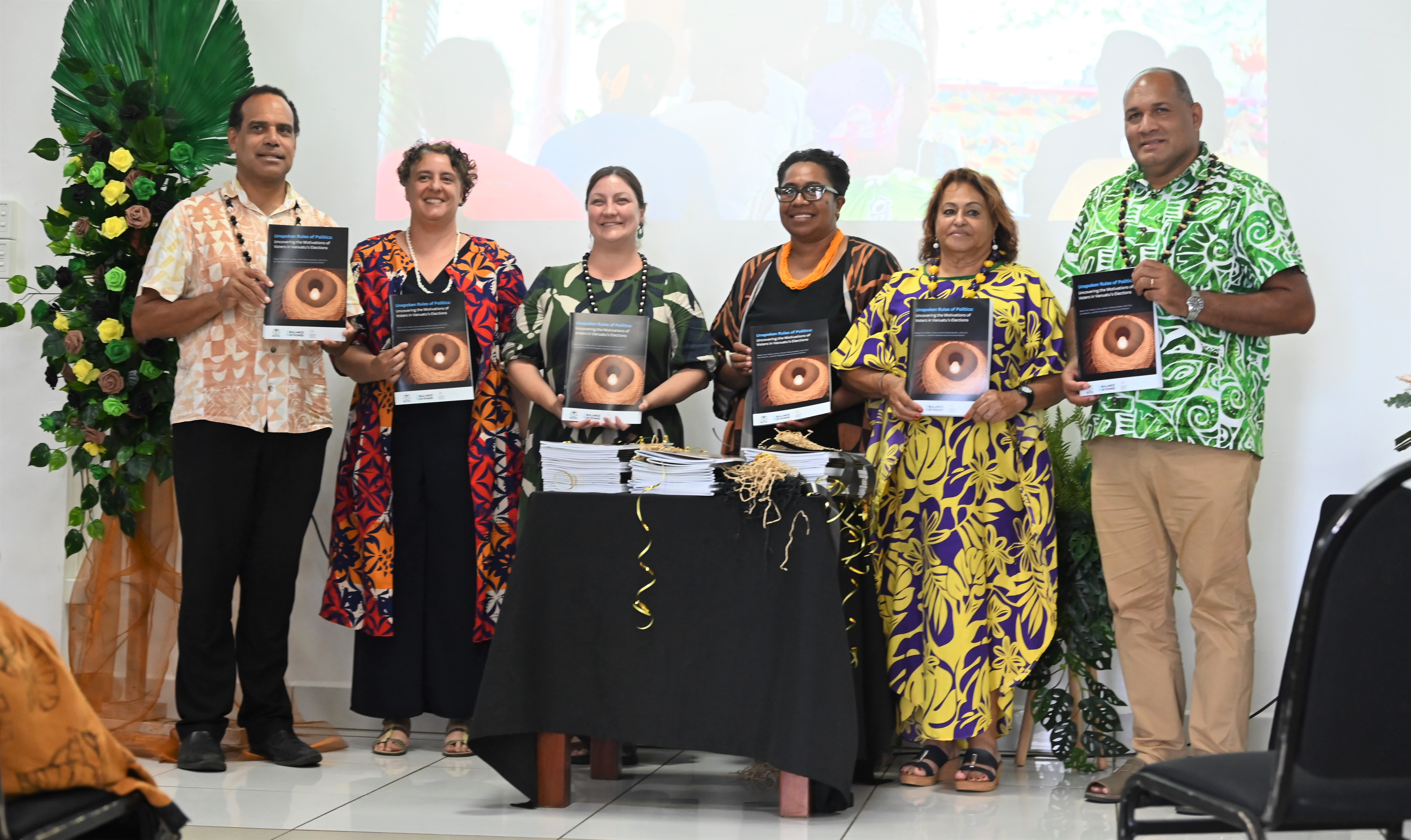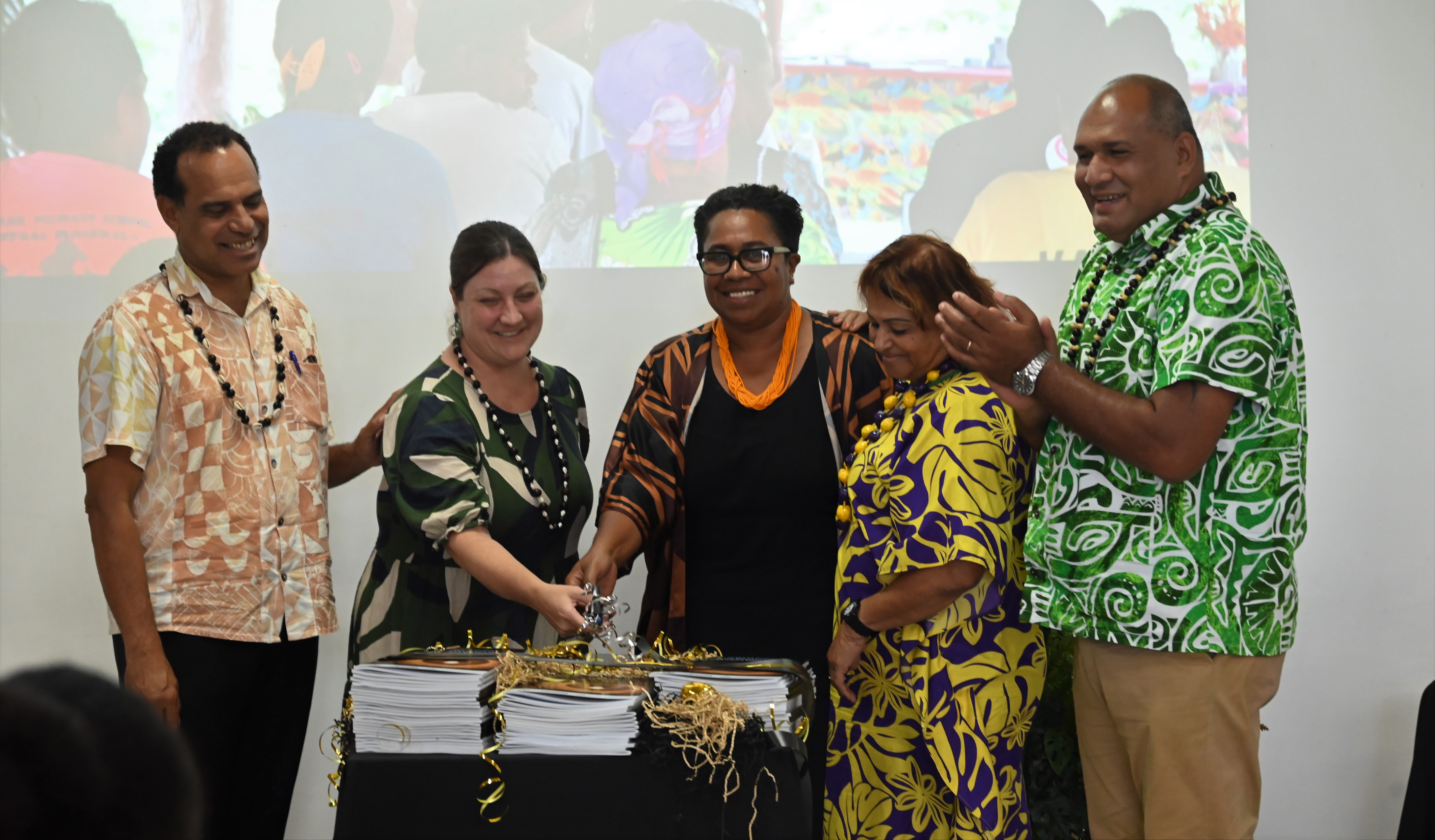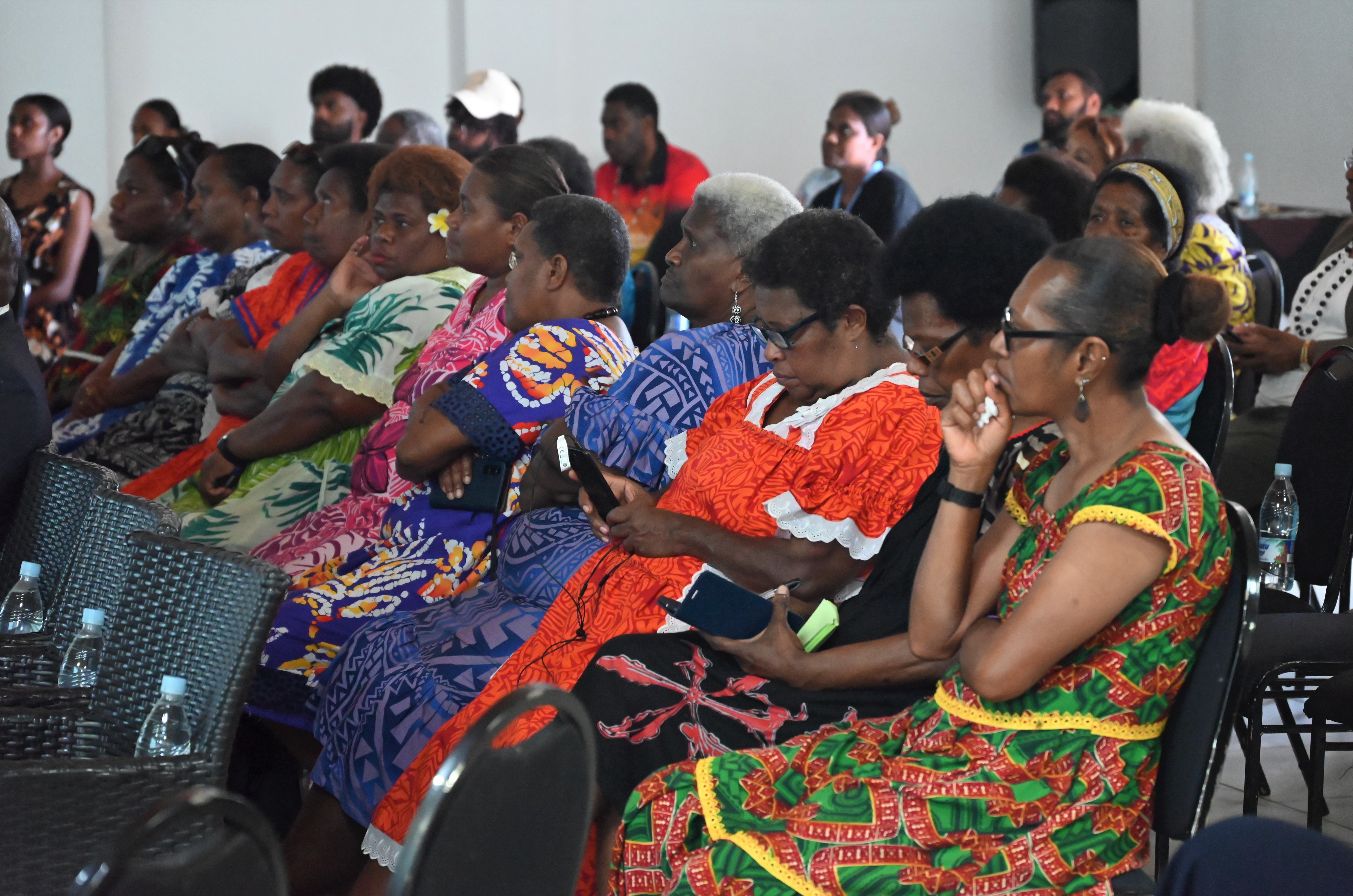
Port Vila, 28,11,2024: In a keynote address at the launch of a ground breaking new report, "Unspoken Rules of Politics: Uncovering the Motivations of Voters in Vanuatu’s Elections," Mr. Albert Nalpini, Acting Director General of the Ministry of Justice and Community Services, highlighted the complex dynamics shaping voter behavior and the challenges to achieving more inclusive governance in Vanuatu.
The report, the result of a collaborative research effort led by the Department of Women’s Affairs, the Balance of Power program, and the Australian National University’s Department of Pacific Affairs, examines voter motivations and the barriers to women’s political representation in the country.
Mr. Nalpini acknowledged the important role played by the Department of Women’s Affairs and the Balance of Power team in driving the research forward. He also recognized the support and collaboration with the Australian National University, whose contribution was essential in bringing this study to fruition.
He began his remarks by emphasizing the significance of the topic: the motivations behind voter decisions in Vanuatu, with a focus on the underrepresentation of women in parliament. Despite efforts over the years, Vanuatu's parliament has never had more than two women members at one time, in a legislature with over 50 seats. In some parliamentary terms, there have been no female representatives at all.
“While much has been studied about the experiences of women candidates and representatives, there has been limited research on what motivates voters to vote for—or against—women,” Mr. Nalpini stated. “This research begins to fill that gap, offering valuable insights into the decision-making processes of voters and the complex interplay of community traditions and democratic ideals.”
The study adopts a Pacific-centered approach to explore how voters in Vanuatu make electoral decisions. It found that voter behavior is influenced by a range of factors, including community customs, group dynamics, and personal relationships. The research also highlighted a widespread desire for change, with many voters believing that women could play a significant role in shaping a more inclusive and transparent political system.
However, the report also reveals that deeply rooted community traditions—what are referred to as “unspoken rules”—continue to shape how voters perceive political candidates, particularly women. These rules often create a tension between kastom (customary practices) and democratic values, with differing interpretations of kastom influencing perceptions of women’s roles in governance.
The findings also pointed to higher expectations for women candidates compared to their male counterparts. According to the research, women candidates are often held to stricter standards, with voters demanding more evidence of qualifications, experience, and leadership ability.
“The research shows that voters expect a lot from their MPs—both men and women,” said Mr. Nalpini. “They want MPs to be qualified, to have good character, to show strong leadership, and to stay connected to their communities. However, for women, these expectations are often higher and more scrutinized. Women face double standards that make it even harder for them to gain acceptance and support.”
Despite these challenges, the acting DG expressed optimism, citing the clear desire for change among voters. He pointed to calls for political parties to be more transparent in their selection of candidates and to provide greater support for women candidates. Communities were also urged to take a more active role in the political process by choosing representatives who truly reflect their needs and aspirations.
In conclusion, Mr. Albert Nalpini called for a collective effort to create a political environment that fosters inclusivity, fairness, and accountability. “Let us empower voters to take an active role in shaping the future of our democracy. Together, we can build a system where women are not only encouraged to lead but are elected in numbers that reflect true equality and shared leadership. The time for change is now, and it begins with all of us,” he said.
The report "Unspoken Rules of Politics: Uncovering the Motivations of Voters in Vanuatu’s Elections" provides critical insights into the complex dynamics at play in Vanuatu’s political system and offers actionable recommendations for improving voter engagement, increasing women’s political representation, and strengthening the democratic process.


